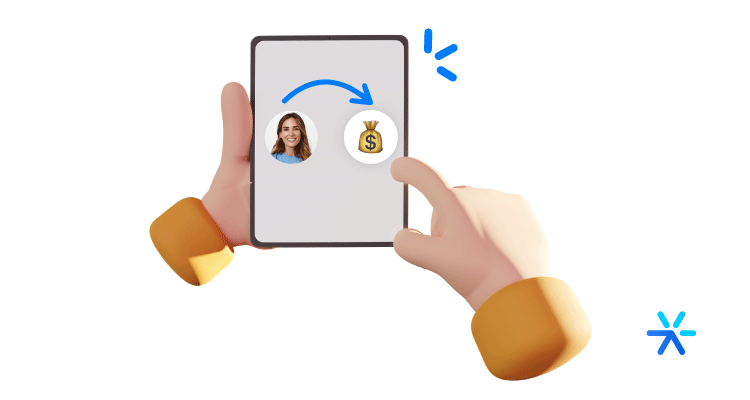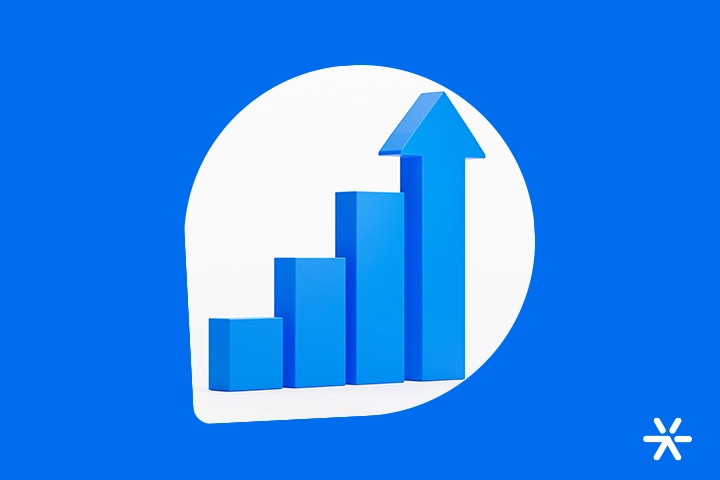What is Commercial Intelligence? How to Make it Happen?
Innovations in the marketing world never stop, especially because demands increase, competitors grow, and you need to keep up with all the updates.
To avoid falling behind, I present to you Commercial Intelligence.
This strategy is ideal for forecasting your sales, better understanding the funnel, and optimizing your marketing tactics.
Keep reading the article to better understand this concept, how to apply it, and its benefits.
Let’s go!
What Is Commercial Intelligence?

Commercial Intelligence, also known as Market Intelligence or Competitive Intelligence, is a set of actions focused on processing market data with the objective of obtaining relevant insights for business strategies and, consequently, improving results.
How Does Commercial Intelligence Work?
The functioning of Commercial Intelligence is based on analyzing market indicators and data, ranging from basic information — such as profit, new investments, number of employees in the segment, company sizes, etc. — to competitor analysis.
Next, the data is analyzed, transformed into business insights, and stored so that users can access them.
From there, the marketing and sales team will initiate their strategic planning, establishing the paths to be followed for the company to achieve its goals.
What Are the Main Functions of Market Intelligence?

Alright, you’ve already understood that Market Intelligence involves collecting and analyzing market data to support your company’s strategies.
But you might be wondering: “What is the real function of Market Intelligence for my company?”
Well, here are its five main functions:
1. Lead Generation and Qualification
By knowing more about your market, you can reach more qualified leads, as your actions will be much more structured and personalized.
Read also: Lead Generator: 19 Best Tools for Capturing Qualified Leads for Your Website
2. Opportunity Identification
When you stay updated with key market figures and information, you can identify opportunities that others cannot see, as they are not “trained” to do so.
3. Market Monitoring
To stay ahead of your competitors and keep up with trends in your segment, market monitoring is a fundamental strategy.
4. KPI Monitoring
Sales and marketing KPIs are essential for measuring the progress of your actions, campaigns, and strategies.
Thus, through your Commercial Intelligence actions, you will be able to monitor KPIs more easily and with better support from market data.
5. Data Collection and Analysis
Finally, we have the core of commercial intelligence, which is data collection and analysis to project goals and objectives and plan your actions.

What Are the Benefits of Commercial Intelligence for the Company?
Now that you know what Commercial Intelligence does in your company, let’s look at the benefits that this strategy can bring to your business.
Identification and Visualization of Sales Opportunities
Through research and data analysis, you can better understand the overall market scenario, from trends to challenges and the needs of your target audience.
As a result, identifying and visualizing sales opportunities becomes much easier and faster for the team.
Better Results for the Sales Team
The more information you have, the easier it will be for the sales team to understand to whom and when to offer products or services.
Another advantage is that the sales team will also participate in the creation and planning of the Commercial Intelligence strategy, aiming to increase brand recognition and attract new audiences.
More Competitive Company
Let’s go back to the point mentioned earlier in the article about standing out among competitors.
This happens because the company will already know the strengths and weaknesses of the market and what actions are necessary to compete with others and get ahead.
Customer Retention
Through market research, as well as consumption behavior analysis, understanding the customer’s needs will become a more accurate and quicker process.
Thus, developing actions and implementing improvements in service and product offerings will become easier.
Read also: 6 Steps to Work on Empathy in Sales and Win Over Customers
More Productive Teams
With accurate data, strategic actions based on objective information, and more personalized approaches, your teams become more productive, as they will already have a good direction for their tasks.
Technologies for Commercial Intelligence

To effectively implement the Commercial Intelligence strategy, it is necessary to use some technologies.
Let’s take a look at them now:
Big Data
Big Data technology analyzes data from various sources, a key point for your Commercial Intelligence strategy.
Business Intelligence (BI)
Business Intelligence, or simply BI, is the technology that analyzes initial client data and extracts insights that help management areas make more accurate decisions.
Customer Relationship Management (CRM)
Customer Relationship Management, popularly known as CRM, is a client management system focused on organizing information, visualizing data, and developing sales contacts.
Enterprise Resource Planning (ERP)
Enterprise Resource Planning, or simply ERP, is an integrated management system that helps plan and monitor business resources and processes.
Data Management
Lastly, but not less important, we have a tool for handling data management. After all, there will be plenty of information to work with.
Therefore, rely on an information management system to store and organize your data, making analysis easier.
What Are the Steps to Implement Commercial Intelligence in Your Company?
To conclude this article about commercial intelligence, let’s look at the four steps you should follow to implement it in your company.
Step 1: Planning
First, you need to plan what should be researched and analyzed.
Think about which problem needs to be solved or what improvements need to be implemented. From there, define which analyses should be carried out.
Read also: Strategic Marketing Planning: What It Is and How to Do It
Step 2: Data Collection
Now it’s time to gather the necessary information and start collecting it.
Use the technologies mentioned above to organize these data and even capture them from other sources.
Step 3: Analysis
Remember to analyze the data according to the KPIs and objectives established in your planning.
Step 4: Dissemination
Finally, it is recommended to share the study, presenting it to the relevant departments to define actions to be taken together.
Leadster Features to Start Using Commercial Intelligence in Your Business
Did you know that with Leadster, you can compare your conversion metrics with others in your segment?
In our Performance Dashboard, you can access metrics such as chatbot conversion, comparison with the previous period, number of leads generated, percentage of completed leads, percentage of qualified leads, percentage of leads sent to WhatsApp, and even the number of chat openings.
This way, you can analyze whether your performance is below or above your market.
This is just one of the many features of Leadster’s conversational marketing chatbot that positively impact your business.
If you want to try it in practice, start now with our 14-Day Free Trial!








